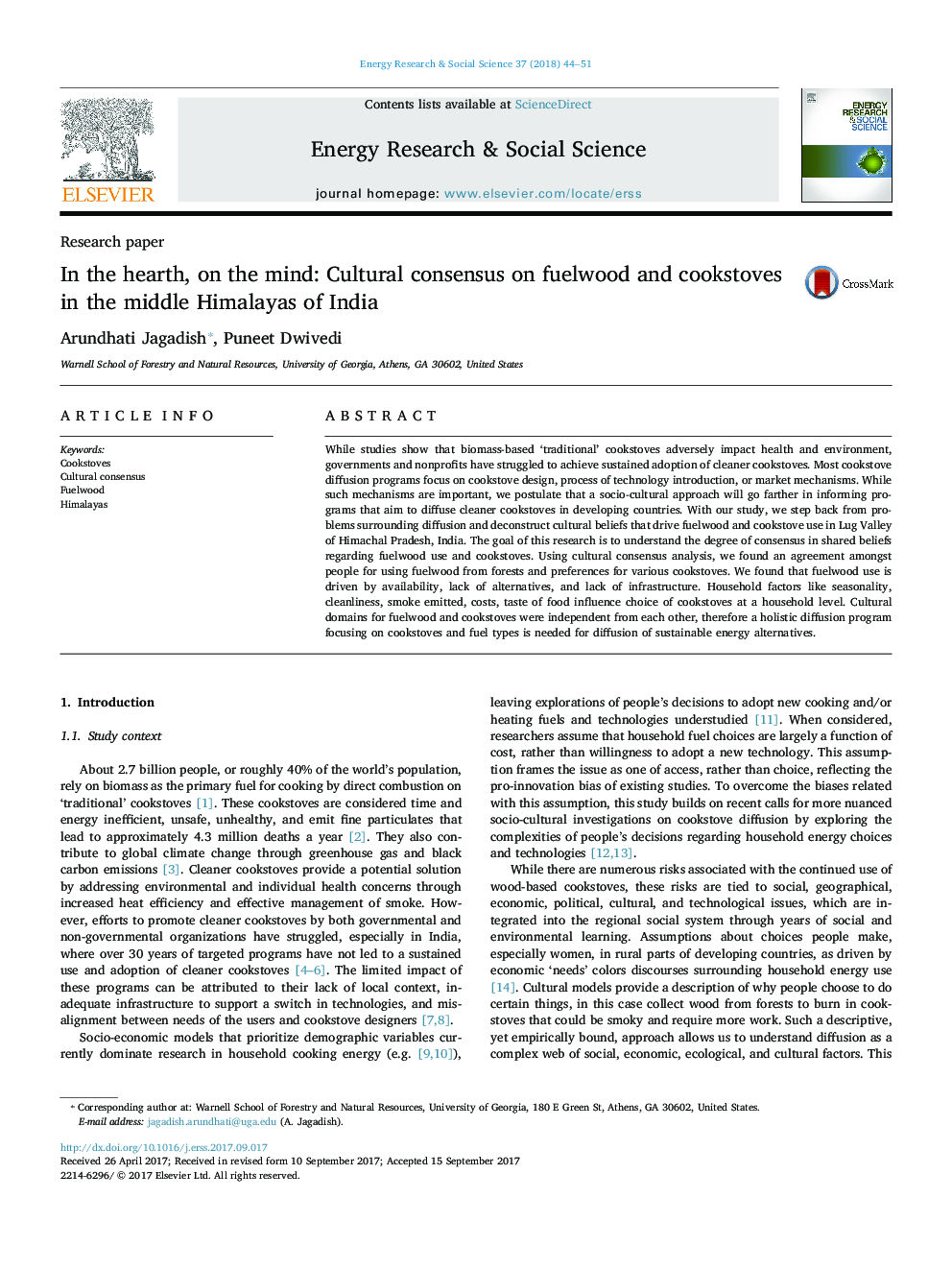| Article ID | Journal | Published Year | Pages | File Type |
|---|---|---|---|---|
| 6463710 | Energy Research & Social Science | 2018 | 8 Pages |
While studies show that biomass-based 'traditional' cookstoves adversely impact health and environment, governments and nonprofits have struggled to achieve sustained adoption of cleaner cookstoves. Most cookstove diffusion programs focus on cookstove design, process of technology introduction, or market mechanisms. While such mechanisms are important, we postulate that a socio-cultural approach will go farther in informing programs that aim to diffuse cleaner cookstoves in developing countries. With our study, we step back from problems surrounding diffusion and deconstruct cultural beliefs that drive fuelwood and cookstove use in Lug Valley of Himachal Pradesh, India. The goal of this research is to understand the degree of consensus in shared beliefs regarding fuelwood use and cookstoves. Using cultural consensus analysis, we found an agreement amongst people for using fuelwood from forests and preferences for various cookstoves. We found that fuelwood use is driven by availability, lack of alternatives, and lack of infrastructure. Household factors like seasonality, cleanliness, smoke emitted, costs, taste of food influence choice of cookstoves at a household level. Cultural domains for fuelwood and cookstoves were independent from each other, therefore a holistic diffusion program focusing on cookstoves and fuel types is needed for diffusion of sustainable energy alternatives.
